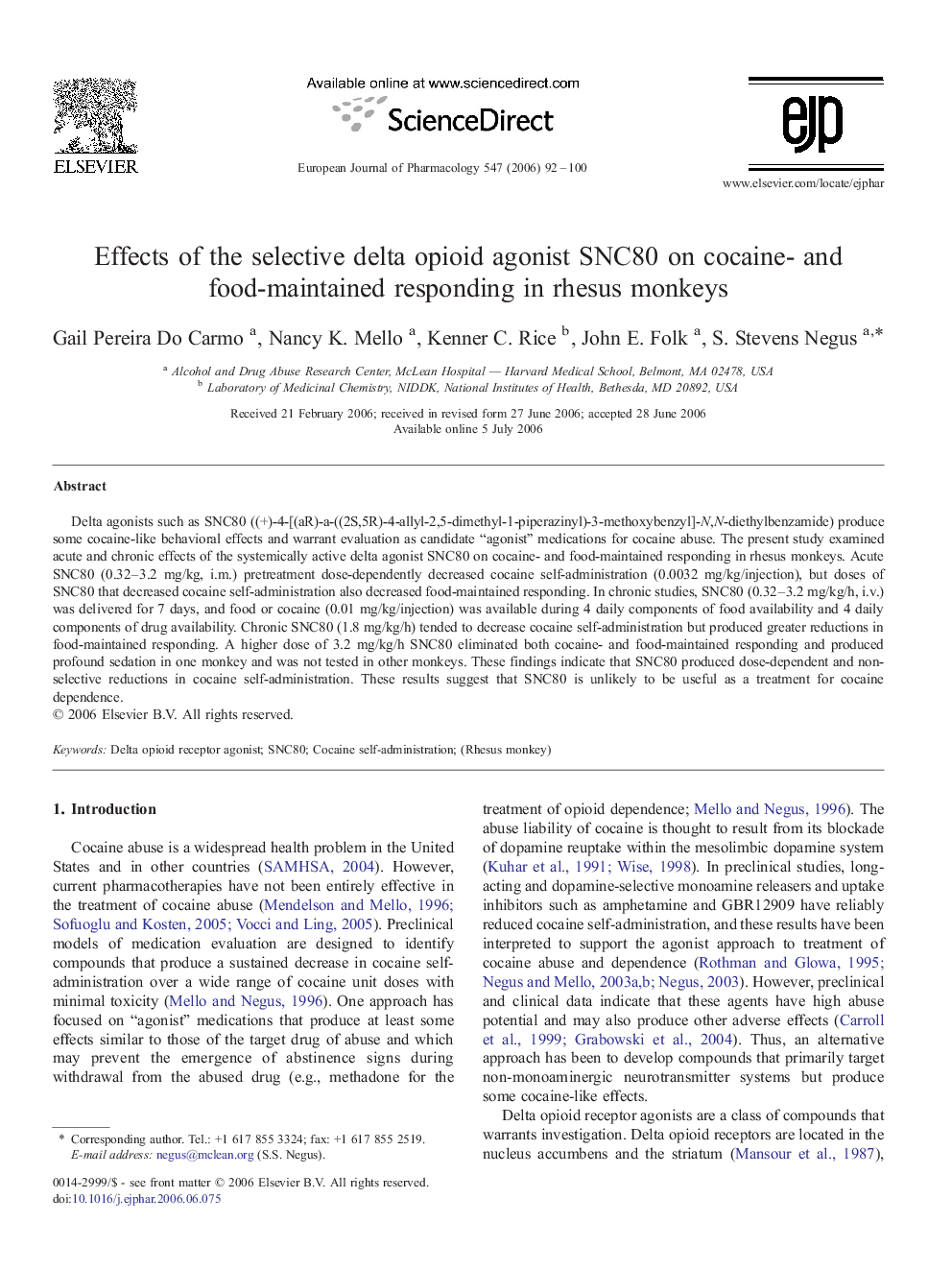| Article ID | Journal | Published Year | Pages | File Type |
|---|---|---|---|---|
| 2536851 | European Journal of Pharmacology | 2006 | 9 Pages |
Delta agonists such as SNC80 ((+)-4-[(aR)-a-((2S,5R)-4-allyl-2,5-dimethyl-1-piperazinyl)-3-methoxybenzyl]-N,N-diethylbenzamide) produce some cocaine-like behavioral effects and warrant evaluation as candidate “agonist” medications for cocaine abuse. The present study examined acute and chronic effects of the systemically active delta agonist SNC80 on cocaine- and food-maintained responding in rhesus monkeys. Acute SNC80 (0.32–3.2 mg/kg, i.m.) pretreatment dose-dependently decreased cocaine self-administration (0.0032 mg/kg/injection), but doses of SNC80 that decreased cocaine self-administration also decreased food-maintained responding. In chronic studies, SNC80 (0.32–3.2 mg/kg/h, i.v.) was delivered for 7 days, and food or cocaine (0.01 mg/kg/injection) was available during 4 daily components of food availability and 4 daily components of drug availability. Chronic SNC80 (1.8 mg/kg/h) tended to decrease cocaine self-administration but produced greater reductions in food-maintained responding. A higher dose of 3.2 mg/kg/h SNC80 eliminated both cocaine- and food-maintained responding and produced profound sedation in one monkey and was not tested in other monkeys. These findings indicate that SNC80 produced dose-dependent and non-selective reductions in cocaine self-administration. These results suggest that SNC80 is unlikely to be useful as a treatment for cocaine dependence.
